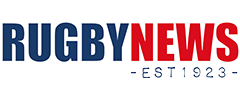
Who will captain Wallabies at World Cup?
| Jun 16 2015
By JIM WEBSTER
Only last week, this writer drove to the south coast to visit an old friend – John Thornett.
He’s living down there in an aged care facility near Moruya Heads and we spent several happy hours together with his wife Viv and another former Norths’ forward John Braund reminiscing about old times, laughing at some of the other rugby players we knew and generally just enjoying ourselves.
Thornett captained the Wallabies on the 1966-67 tour of the British Isles and France, which I was fortunate enough to cover for The Sydney Morning Herald.
It’s hard to imagine that was nearly a half-century ago.
Yet having seen so many Wallaby teams in action since those days in the sixties, and witnessed their captains, I still rate Thornett as among our best leaders – if not the best.
It so happens that Wallabies coach Michael Cheika has the task ahead of him of choosing our next captain, probably between Michael Hooper and Stephen Moore.
He says that whoever he chooses to




